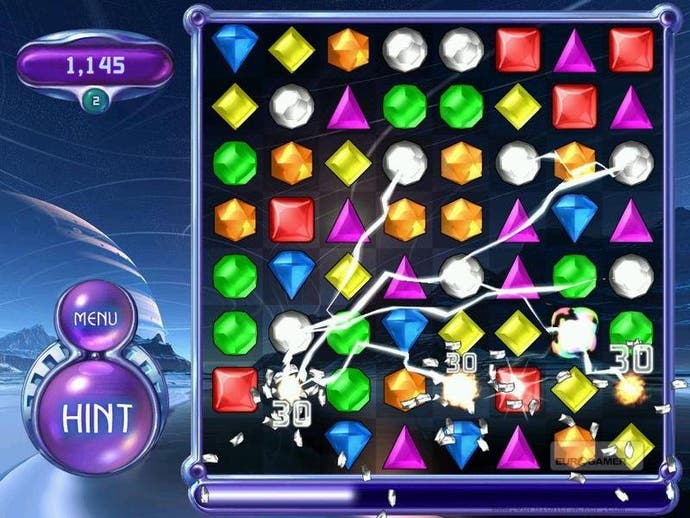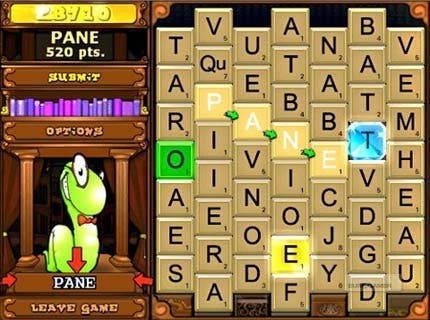Inside PopCap Games
Sexy Action Cool.
Learning from failure is easy. Learning from success - particularly slightly unexpected success - can be a lot more difficult. With failure, after all, there's no shortage of people offering to point out where you went wrong - "Your crafting system's wonky," "Lara keeps getting stuck on the scenery," "No, Denis, Cyber-Vikings aren't cool," - and then, of course, there's that little voice lurking in the back of your mind telling you that you saw all this coming in the first place, and just chose to ignore it. But success? Tricky stuff. Where do you start? How do you sift through the hundreds of different elements that made for a successful project, looking for the single magical idea that you should now be expanding upon for fun and profit?
I've been pondering this matter ever since spending the day with PopCap, in the developer's Seattle-based HQ. The last time I was here, immediately prior to the launch of Bejeweled Twist near the end of 2008, there was a certain air of confidence - politely understated, naturally - drifting through the corridors and cubicles. PopCap was on top of its game, and about to release the long-awaited follow-up to its biggest hit.
There was an unmistakable sense that the company knew what it was about, and, more importantly, knew who its audience was. In between rehearsals for a glitzy press launch involving gymnasts, light displays and a hulking mechanical prop that looked like Captain Nemo's steering wheel, I was shown a fleeting glimpse of a new game one of PopCap's many teams was working on, called, at the time, Lawn of the Dead. The PopCap founders knew it was going to sell well - it was so polished and witty, such a basic joy just to watch in motion, that it could hardly fail - but in the months following its release, after it had been retitled Plants vs. Zombies, it turned out that it was selling a lot better than just 'well'.

And it sold to what PopCap's not afraid to label the 'hardcore' audience, practically haemorrhaging copies all over Steam, sailing past Bejeweled's figures for the PC service, and doubling, tripling the kind of stats they were seeing Valve bring in even for something like Peggle, which the community had already claimed as their own. It was great news, but is it possible it was also enough to give PopCap pause?
None of which is to suggest that the developer's currently lacking in direction - after all, it sells a copy of Bejeweled roughly every 10 seconds - but Plants revealed strengths PopCap perhaps wasn't aware were so developed, and reminded the team of an audience it hadn't entirely focused on yet. In short, it was the kind of unexpected level of success to which you must listen.
You can still learn from mistakes, too, of course. And, as it happens, PopCap CEO Dave Roberts is learning from one right now, in the upstairs dining area of a ridiculously smart downtown Seattle restaurant. Roberts has invited the press here, in the middle of the city's Casual Connect games developer conference, to show off a few of his company's new wares - a free update for Bejeweled 2 on the iPhone adding the score-rush Blitz mode, which will allow players to post leaderboards on Facebook, and Bookworm Adventures: Volume 2 - but, perhaps foolishly, he's handed out a few iPod Touch units to the crowd in advance, and now, no-one's really listening to him anymore. They're not listening because they're all too busy playing PopCap's most famous game, notepads and pens sat idle while they stab away at the screen, sinking combos and lining up chains.

This is classic PopCap front and centre, then: match-three games, spelling games, intelligent sequels that are effortless to understand, and often impossible to put down. It's the same ideas that have been around since the days John Vechey, Brian Fiete and Jason Kapalka launched the company back in 2000. "We didn't have anything sophisticated in mind," admits Kapalka, later the same day, in a meeting room at PopCap's HQ. "We basically thought we could make Java games for the Web and sell them back to companies like Pogo and Sierra. We started at the absolute nadir of the internet boom, where everybody lost their jobs, but we didn't really notice that at the time. Mostly because we weren't doing anything - we didn't have any money, any investments, and we certainly weren't going over to talk to VCs at that point."
A measure of how the new developer initially saw its future playing out can be divined from its original choice of name. "We called ourselves Sexy Action Cool," laughs Kapalka, "because we didn't think we were going to be a public-facing company. We changed that after a while when we realised we were actually getting traffic to our website. It still caused a few problems, though. For a while, when I had a work visa in Canada, I had to explain to the border guards that I worked for an internet company called Sexy Action Cool. That was a little difficult."

